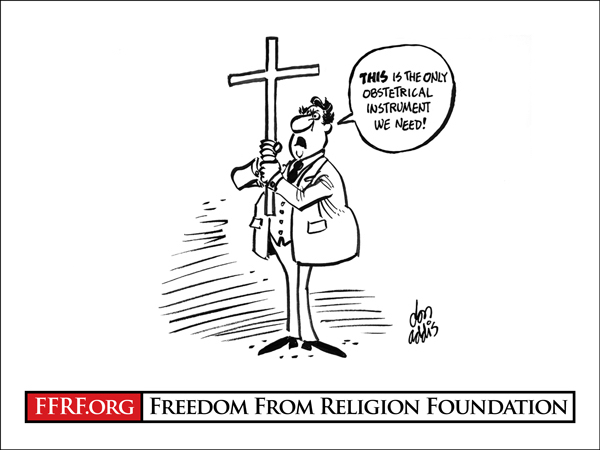
On Thursday, Mississippi Gov. Phil Bryant became the most recent governor to sign into law a punitive bill that is popping up in states around the country. The bill bans abortion once doctors are able to detect a fetal heartbeat, which can happen as early as six weeks into a pregnancy.
Similar bills, often dubbed “fetal heartbeat bills,” have appeared in states including Kentucky, which just passed a similar law earlier this month, and Iowa, whose 2018 law was struck down in state court this year. Several other states, including Florida, Missouri, Ohio, Tennessee and Texas, are soon expected to pass similar restrictions. Georgia is debating a “heartbeat” bill right now.
These “fetal heartbeat bills” are a tactic of Christian supremacists to effectively overturn Roe v. Wade and criminalize abortion state by state. They are also, unsurprisingly, based on the dogmatic religious belief that ensoulment takes place at conception, explicitly conflating a human embryo with an “unborn child.”
According to the New York Times, during the signing ceremony for the bill, Bryant described a heartbeat as “the universal hallmark of life since man’s very beginning.”
This position, despite Bryant’s inflated rhetoric, is in fact not universal. According to the bible, life begins at birth — when a baby draws its first breath. The bible defines life as “breath” in several significant passages, including the story of Adam’s creation in Genesis 2:7. Jewish law also traditionally considers that personhood begins at birth. And, of course, nonbelievers hold a diverse array of views, but overwhelmingly support Roe v. Wade.
These so-called “heartbeat bills” of course clash with Supreme Court decisions that have recognized a woman’s right to choose abortion, but they also would restrict the personal decisions of all, based on the religious beliefs of the few. This is an abhorrent violation of our rights of conscience.
Logistically, there is no question that the six-week bans proliferating across the country would prevent many women from accessing abortion care, just as the Religious Right intends. Most people do not find out they are pregnant until after six weeks. Further abortion restrictions — like mandatory waiting periods, costs not covered by insurance and the distance many patients in rural areas must travel to seek care — all complicate access to abortion before six weeks into pregnancy.
The decision whether to have a child is a personal and intimate one that ought to be made without interference from politicians. People who oppose abortion should not have one, but they also have no right to use their positions of power to inject religion into our secular laws.

